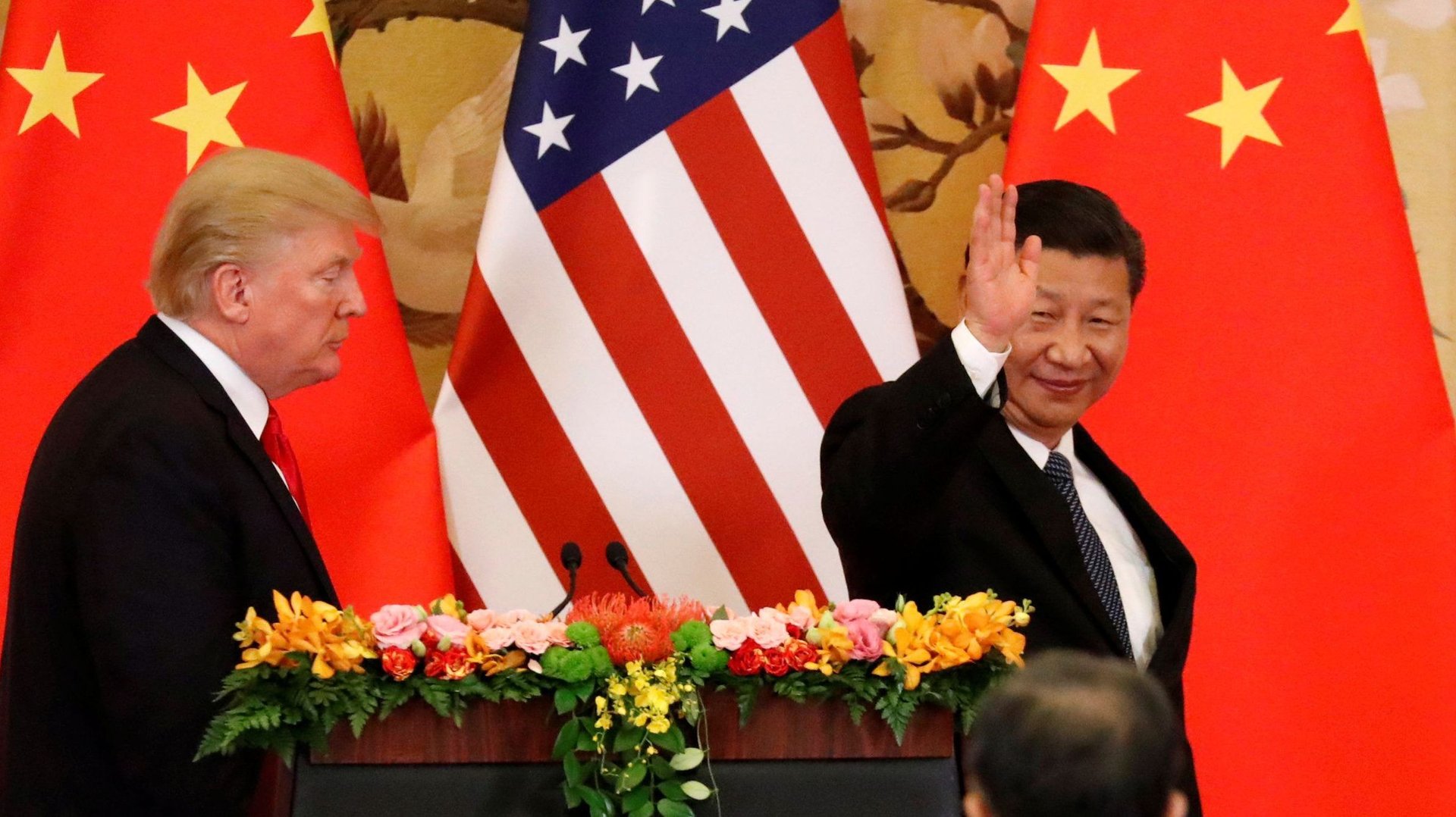Trump accuses China of currency manipulation and investors are very unhappy
The S&P 500 continued its decline Monday (August 5) after its worst week of 2019, dropping 3% after president Trump resumed his economic sparring with China. The Dow Jones Industrial Average also dropped 3%, or 800 points, while the Nasdaq plunged 3.7% as US-Chinese trade tensions intensified.


The S&P 500 continued its decline Monday (August 5) after its worst week of 2019, dropping 3% after president Trump resumed his economic sparring with China. The Dow Jones Industrial Average also dropped 3%, or 800 points, while the Nasdaq plunged 3.7% as US-Chinese trade tensions intensified.
The damage wasn’t limited to any one sector, as the downturn rippled across the US stock market. Valero Energy and NVIDIA were among the day’s biggest losers, shedding 6% apiece. Twitter, E*Trade, and Macy’s tumbled 5% each.
Although the Federal Reserve cut interest rates last week—a first since the Great Recession of 2008—the US equity market has been rattled by the escalation of a Chinese trade war, which appears to be a losing effort, at least for the US. The S&P 500’s latest slide occurred as president Donald Trump renewed his social media barrage on China:
“China dropped the price of their currency to an almost a [sic] historic low,” Trump tweeted Monday morning, accusing the country of currency manipulation. New York Democrat Chuck Schumer, the Senate minority leader, joined the president’s rebuke, encouraging the White House to label China a “currency manipulator” in a statement he shared with Bloomberg.
The Chinese currency breached an exchange rate of seven yuan to one dollar (a psychologically significant threshold) just days after president Trump said he would impose further tariffs on China. A weaker yuan makes Chinese exports cheaper and dampens the impact of the additional 10% duty on $300 billion of Chinese-imported goods Trump announced Thursday. The policy is effective September 1.
“[A] 10% tariff will mostly be borne by China in the form of them lowering their prices and devaluing their currency,” Peter Navarro, the White House’ director of the Office of Trade and Manufacturing Policy told NPR Friday. Asked whether American consumers would see higher prices when repairing their homes or shopping for children’s toys, Navarro pivoted to talking points about Chinese fentanyl exports and cybersecurity threats.
Although the White House seems to be playing hardball with China, the strategy may ultimately curtail US growth. Already American investors are feeling the pain. American consumers could be next.